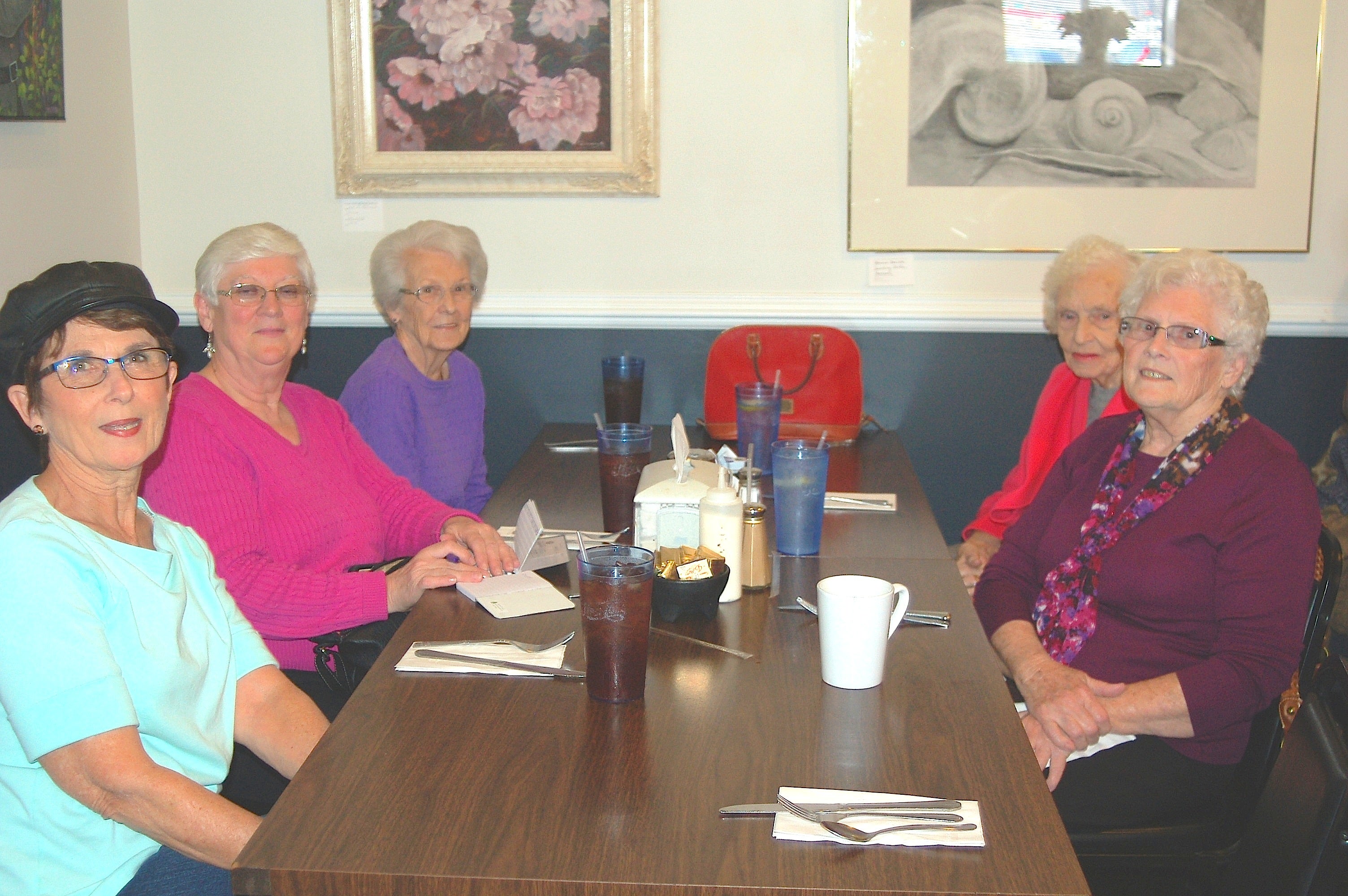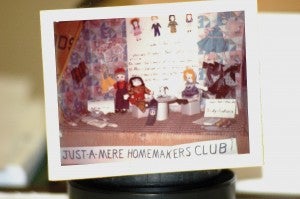History preserved: Homemaking skills shared by Extension clubs
Published 4:25 pm Thursday, January 21, 2016

- Reminiscing at the final meeting of the Just a Mere Club are, from left, Linda Timmons, Linda Medlin, Naomi Armstrong, Anne Berry and Lois Bowles.
An era ended over lunch at the Riverside Cafe recently. The Just a Mere Club, one of Prince Edward’s original home demonstration clubs organized in 1960, was meeting for the last time.
“Our membership had dwindled down to six,” Lois Bowles said.
Bowles, who joined in 1963, was one of the club’s first members.
“Lately there hasn’t been but two or three of us at a meeting,” Bowles said. “We hated to do it, but we decided to call it quits.”
The Just a Mere Club was one of the 12 home demonstration clubs that organized in Prince Edward after World War II. The late Eunice Motley, home demonstration agent for Prince Edward Extension Service, managed them.
“I worked with all 12 home demonstration clubs,” Mottley said in a 2011 Herald feature. “I was responsible for the home economic programs.”
“One of our club members would go to the extension office every month, and Mrs. Mottley would give a demonstration,” Bowles said. “Then the club member would come back and give that demonstration at our next meeting.”
The history of home demonstration clubs in Virginia actually dates back to World War I.
“At the outbreak of World War I, greater emphasis was placed on growing and preserving larger quantities of food. Food demonstrations were in great demand. Homemakers wanted to learn the best way to use home-produced foods to feed their families more nutritious meals. ‘Food will win the war’ became a slogan, and rural families were encouraged to grow and use their own as well as produce extra for sale,” according to “College of the Fields: Highlights of the Virginia Cooperative Extension Service”
The concept of hands-on demonstrations, Mottley noted, started in 1910 with “Tomato Clubs” designed to teach girls the art of canning. The 46 girls in the first club agreed to plant and care for 25 tomato plants, then can the fruit. Ella G. Agnew, of Burkeville, was the leader of the project. Even after the Tomato Club project had run its course, Miss Agnew continued to share her skills with local women.
“Mrs. Spurlock in Meherrin told me about Miss Agnew,” Mottley said. “Mrs. Spurlock and her sister said Miss Agnew would get on the train in Burkeville, bring the canning equipment to Meherrin, show the ladies how to can tomatoes, and then get back on the train and go home to Burkeville.”
Food demonstrations with a personal touch caught on with local homemakers as clubs began to organize in Prince Edward and across the state.
Local homemakers clubs were located in Farmville, Abilene, Mt. Pleasant, Feldon, Jamestown, Green Bay and Prospect. According to the Extension Service plan, these clubs held 10 meetings a year (with a picnic in summer and Christmas gathering in December).
Home demonstration clubs in the county were responsible for the rest room project in Farmville. Not a “restroom” as we know it today, Mottley explained, this was literally a room to provide a “rest” stop for local farmwomen and their children. While farmers attended to business in town, their families had a place to go.
Prince Edward’s rest room was located in the basement of the Court House.
“As Farmville developed into a shopping and business center for half a dozen counties, a logical outgrowth was a community rest. A matron was on hand to care for babies and small children; the pleasant large room was equipped with chairs, cot, baby crib, a table at which to enjoy a sandwich brought from home, reading material and other comforts. The home demonstration clubs established the rest room with the cooperation of the county board of supervisors, town council, and the American Legion,” according to “History of Home Demonstration Clubs in Prince Edward.”
“The clubs organized themselves, but they depended on extension for educational programs,” Mottley said.
Programs were given on such topics as nutrition, home decorating, clothing or home management.
The Just a Mere Club believed in putting its food programs into practice by holding an annual picnic and spring salad luncheon, not to mention refreshments at every meeting. Just a Mere members also participated in two old-fashioned quilting bees, one of which was featured in a story in 1993 by Marge Swayne in “Good Housekeeping” magazine. Funds from that quilt raffle were donated to the Prince Edward Volunteer Rescue Squad.
The remaining six members of the club reminisced about such projects at their final lunch/meeting in December.
“We hate to give it up,” Bowles said. “But we’ve lost so many of our members. There’s a lot of memories here — and a lot of history.”
For nearly a century Extension clubs like Just a Mere recorded Prince Edward history on the home front. Due to their efforts, homemaking skills will live on for the benefit of future generations.





